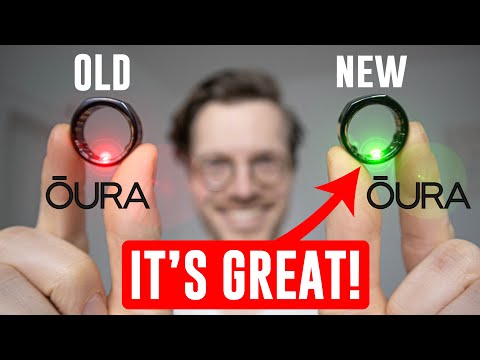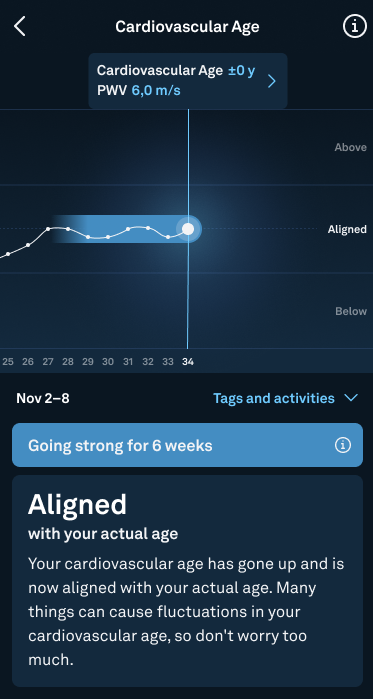The Oura ring portal says I started wearing the ring 19/8/2019. I have had four rings, two are updated versions of the physical ring and two were free replacements because of battery issues. Oura support is excellent. Very fair on their assessments and very responsive. I’ve found the ring is very robust and other than early battery issues, they are completely reliable.
I have tried a lot of other wearables in an attempt to collect actionable data. I use Garmin - currently 955 Solar - for all my serious exercise and competitive events. I still have a ‘nearly’ up-to-date Apple watch but it mostly sits on my desk because they deliberately dumb down the potential features and the battery life is still awful. Besides I prefer an analog watch!
As an early adopter, I don’t pay the monthly subscription fee but I certainly would to keep everything working.
The online Oura Ring Portal allows me to analyse long term data. I don’t use it often but it allows me to compare long term data ie, I have a “Moderate positive correlation” for a higher HRV score and improved Deep Sleep. I can compare every area of sleep and activity from Aug 2019 until today.
Oura has other useful data - lowest resting heart rate (HR) in sleep, Heart Rate Variability (HRV), and body temp. There are other reported metrics ie sleep stages, steps, calculated calorie burn, etc. but I do not rely on these, nor do I check them regularly. Like a lot of serious athletes, I’m data obsessive to help me justify and support changes, or confirm improvements.
The Oura ring links to my phone so it automatically registers, all runs, bike rides, swims, etc.
The sleep information is imperfect but better and more convenient than any other wearable I’ve tried. Whether it is totally accurate or not, doesn’t matter too much to me. I’m convinced that the data is consistent and works well in assessing my ‘relative’ sleep data. Therefore, I find the Oura data useful relative to itself. I am happy to rely on myself to determine how I feel good.
I usually take the ring off to charge it in the morning while answering my overnight email - it’s also better for the battery not to let it run down - although I have worn it for 4/5 days without and issues. I move it from my right hand “ring finger”, to my larger “index finger”, when I’m swimming, to combat cold hands. I have never found wearing the Oura ring inconvenient.
One interesting metric is the temperature information. I have had covid once, 21/6/22. Using Oura’s “body temperature” data I found that my temperature was one degree higher two days earlier than I really felt sick and the increased temp lasted for four days. My temp indicated that I was sick nearly two days before it really hit me.
Yep, I’m a fan boy!

